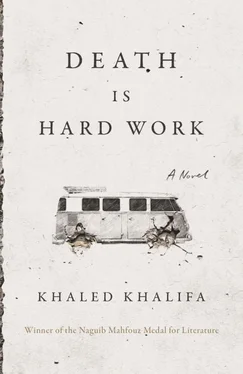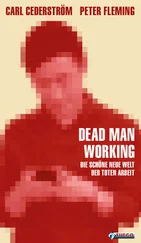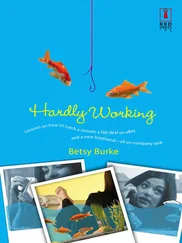No one slept in the small town that night. Police and Mukhabarat officers withdrew from the town, and the young people were ready to burn down any building belonging to the regime: the police station, the council building, the houses of informers who were individually known to them, supporters of the party. More than twenty thousand men, women, and children protested and raised their fists in the air in rage while they waited at the town gates for the bodies of Haitham and three of his friends, all murdered under torture in a Mukhabarat facility. One member from each family went to sign a receipt for the body of its son, who had officially died in a car accident or as a result of some mysterious illness.
The large car carrying the four bodies glided along in the distance. Nevine was sitting in the front seat looking ahead at some invisible point, her face grim and unreadable. Abdel Latif was standing in the middle of the crowd, watching her. His tears streamed silently as his eyes, along with everyone else’s, fixed on the bodies that the young men carried on their shoulders through every street, amid angry cries calling for the fall of the regime.
Nevine asked everyone carrying the bodies of Haitham and his friends to bring them to her house. They carried the three bodies and a black bag in which the dismembered lumps of her son’s flesh were gathered. She coolly asked Haitham’s doctor friends to reassemble his corpse. They tried to convince her that it would be useless. Why would a corpse care about that? Many people had buried whatever remained of their children when they hadn’t received a complete corpse—but she was determined, and no one dared to dispute her. She waited for them by the door. The doctors worked for hours in a terrible state of mind. It wasn’t easy to put their friend back together. Haitham’s body didn’t have any fingers, and the fate of those severed fingers remained a mystery, though his face and most of his other limbs had been returned. He had been shot in the back of the head before being cut up. When they were finished, the body was carried out in a shroud. Nevine lifted the shroud from his face and looked into his eyes for the last time, wanting her hatred to reach its fullest extent.
Abdel Latif’s eyes didn’t leave Nevine’s face for a moment. He kept his distance to screen his anguish and didn’t approach the mourners who stayed up with the four corpses all night. They put the bodies on a large wooden platform, surrounded them with flowers of every description, covered them with revolutionary flags, and left their faces uncovered. It was the utmost defiance. After the morning prayer, the bodies were buried in the new graveyard constructed on land Nevine had donated on the western side of her house. She now left that building so the whole house could be devoted to the field hospital and moved to her old small apartment close to Abdel Latif’s house. She took very few things with her, just enough for a lonely widow in her sixties.
Over the following days, Abdel Latif spent hours every day managing the graveyard. He traced the outlines of walkways between the graves and left plenty of space to plant trees and flowers. He wanted it to be eternal, not just a simple cemetery. He hadn’t expected that within two years it would be crowded by one thousand seven hundred graves. He arranged them in two sections: one for the young fighters, most of whom were no older than thirty-five, and another for the civilians killed by air raids, missile attacks, and every sort of heavy weapon used during the unceasing bombardment. Whole families were killed, including children and women and old people who couldn’t get away. This territory of death became his whole life, and he spent most of his time looking after it.
At the time of Haitham’s murder, when Abdel Latif was able to speak his few words of condolence, Nevine told him she was no longer afraid. Nothing in this life mattered to her anymore. He asked her to leave all the affairs of the graveyard to him and freed her from it completely. He spent his time arranging the paths, planting flowers everywhere, and distributing them over the graves. The graveyard acquired some narcissi, and every morning Nevine would watch Abdel Latif as he worked tirelessly. She expected him to invite her to join him in caring for the basil and rose seedlings. From the moment she had looked into the void, Abdel Latif also transformed and became like her. He no longer had anything to be frightened of. He was the bravest he had ever been. He would visit her in the evening and leave odd things by the door he said she had liked more than forty years before. He would remind her of moments so long past she couldn’t remember if they had truly happened—had she really listened to those songs, smelled those roses? There wasn’t much time left for the man granted inexhaustible energy by the revolution. He suffered from a surfeit of projects, discussed every detail pertaining to the town, joined every committee, swept the streets with young volunteers, filled placards with his beautiful calligraphy for the Friday protests.
Soon spontaneous protests were springing up almost daily, and in spring 2012 everyone was preparing to celebrate the revolution’s first anniversary. The presence of armed men was nothing unusual by then, mostly defectors from the army, young men from the town, and other volunteers. They organized themselves and set up ambushes for vehicles belonging to the army and the Mukhabarat, who could no longer enter the town at will.
The battles intensified with each day. The angry debate between advocates of peaceful revolution and those of armed revolution was decided in favor of the armed faction, which possessed the force necessary to satiate everyone’s hunger for revenge. Everything happened so quickly that Nevine couldn’t believe armed fighters were wandering the streets at night in such numbers. The sounds of battle, which never stopped once they began, were all around her, and there was no longer any time for mourning. Whole families fled the town as the specter of death hovered over every house; university students left their studies, tradesmen and day laborers their work, and young men of every age and profession left their former lives, all to join the Free Army.
The city changed. Evenings were no longer safe. The columns of fleeing emigrants filled Nevine’s heart with desolation. Her second son, Ramy, wouldn’t listen to her pleas to leave the country after he defected from the regime army. At his first opportunity, he fled his barracks with some friends and joined a battalion in Deraa. They let him choose between crossing the border to Jordan, reaching the town of S, or fighting alongside them and sharing their fate. He chose the last option without hesitation, believing that every place was the land of the revolution, not just his home village. He was brave while he lived out his revolutionary dreams with his comrades. He didn’t give much thought to what might happen to him; after all, everyone already despaired of their lives. Before joining the Free Army, he had seen everything; he needed no one to explain to him the principles of the regime and its army. He had already witnessed the looting and murder carried out by its penniless soldiers. Their orders were clear: kill indiscriminately, not excluding children, women, and the elderly. The last night before his defection, all his options seemed equally untenable. He wouldn’t be a murderer of his own people, even if they shot him in the back of the head for refusing. On that great night when he finally escaped, more than forty soldiers defected all at once, and after they reached the other side, they split up, taking different routes and dispersing throughout the country. Some crossed the border into Jordan; others scattered among the armed battalions of the revolution; still others chose to go into hiding or to return to their families despite the difficulty of reaching them. Ramy fought until his last gasp. He was killed while liberating a military security facility in D, a battle that lasted more than twenty hours. Nevine was unsurprised when she heard the news of his death. She had known he wouldn’t be able to live after his older brother’s death. Their final conversation, three days before he died, had been upbeat. He told her about the comrades with whom he lived in a barren wasteland. He spoke loudly and boisterously, and she could tell he was frightened. He didn’t tell her about the upcoming attack, which would most likely be a large battle, but reassured her and promised her he was trying to leave the country. She had been begging him with all her strength to do this; she didn’t want him to die, she had already lost enough people, and she had no one left but him. But deep down she knew that death had him in its grip and wouldn’t let him go. She was prepared to hear the news at any moment, and the grand words his comrade used to describe his sacrifice meant nothing to her. He had indeed been brave and had indeed fought fearlessly, but in the end he had died and left her alone. This was what she was thinking as she received condolences from the people of S; they had heard the news from their own contacts in the Free Army, which lamented him as a martyr and a hero.
Читать дальше












